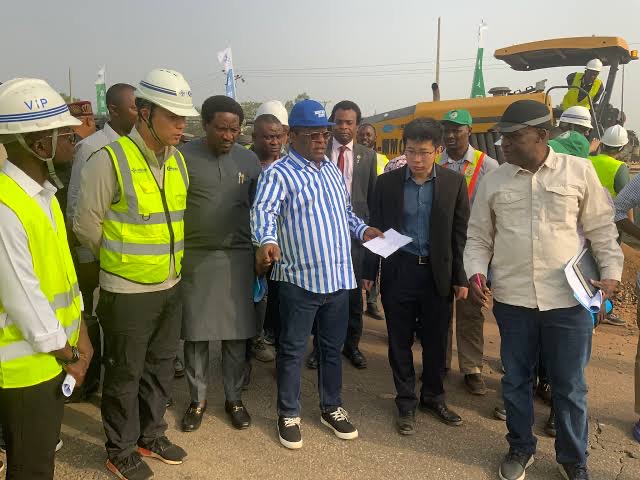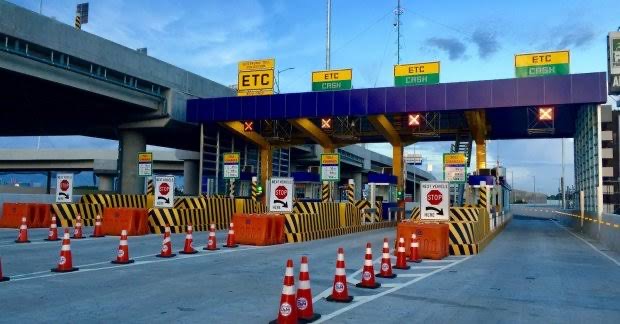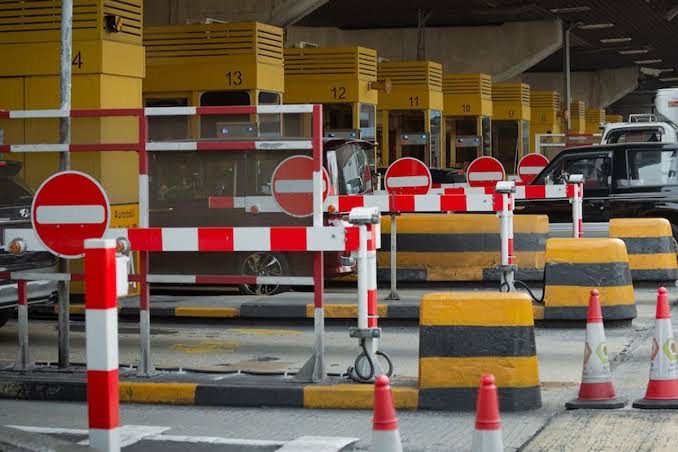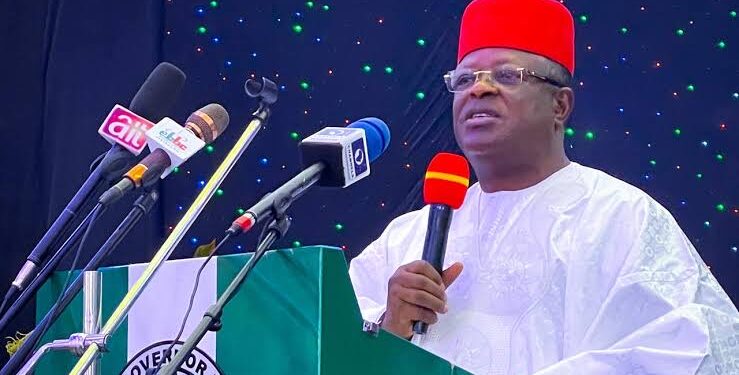Minister of Works, Dave Umahi, announced that the Federal Government will introduce tolling on major roads. This will occur once ongoing construction and renovation projects are complete. This move is part of a broader effort to generate revenue and maintain infrastructure effectively.
Speaking at an Inter-Ministerial Press Briefing in Abuja, Umahi elaborated on the plan to toll major highways. This event marked Nigeria’s 64th Independence anniversary.

He mentioned key projects as candidates for tolling, including the Lagos-Ibadan Expressway, Second Niger Bridge, Abuja-Kano Road, and Makurdi-9th Mile Road. “We have the Lagos-Ibadan (Expressway). We are completing it, and we are tolling it,” Umahi stated. He emphasized that tolling federal roads will generate significant revenue.
Also read: Arewa Youth Leader Praises President Tinubu for Increasing Corps Members’ Allowance
According to the minister, private sector partners are crucial to this initiative. He explained that private sector players will help fund these road constructions. They will collaborate with the Infrastructure Concession Regulatory Commission and the Ministry of Works.

The tolling system will provide a sustainable way to maintain these roads. Revenue generated from tolls will support these efforts. One of the first roads set to be tolled is the Keffi-Makurdi Road, which has already been completed.
Umahi revealed that the Ministry of Works is working closely with the Ministry of Finance. They will ensure that the tolling process is modern and efficient. A paperless payment system will be used for ease of access.
“For example, we are completing the Lagos-Ibadan (Expressway). We are working on Makurdi to 9th Mile in Enugu State. We are working from Abuja to Lagos. These roads will be tolled,” Umahi continued. He stressed that the goal is not simply to charge road users. It is also to instill confidence in the quality and safety of these roads.

“If people can travel at night due to security, the response time will be 10 minutes,” he added. This applies to the entire corridor, where solar lights will be permanently installed. This will reduce travel time, and tolling will maintain the roads.
Umahi acknowledged that historically, road development in Nigeria has not been treated seriously. It was often neglected or handled inefficiently.
However, under President Bola Tinubu’s administration, there has been a marked shift. This shift is toward a more professional and sustainable approach to road development. He noted that the current government inherited over 300 damaged roads and bridges. This highlights the challenges they face.
Nevertheless, Umahi expressed confidence in the government’s ability to address these issues. He announced that new road construction projects would start on October 1, 2024. These projects will span all six geopolitical zones of the country. This ensures that all regions benefit from improved infrastructure.
The introduction of tolling on Nigeria’s major highways represents a significant shift in funding road infrastructure. By partnering with the private sector and adopting modern payment systems, the Federal Government aims to create a reliable road network.
At the same time, the tolling system is expected to generate substantial revenue. This revenue will be reinvested in maintaining the roads for years to come.



































